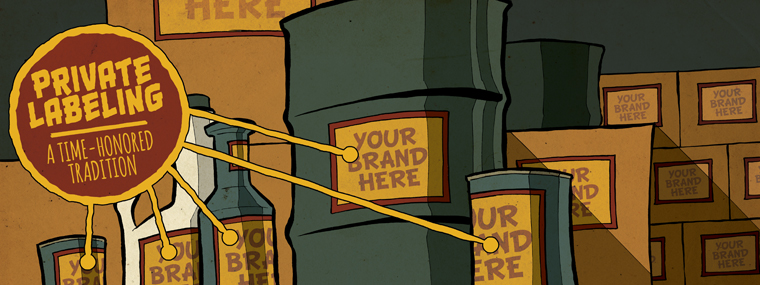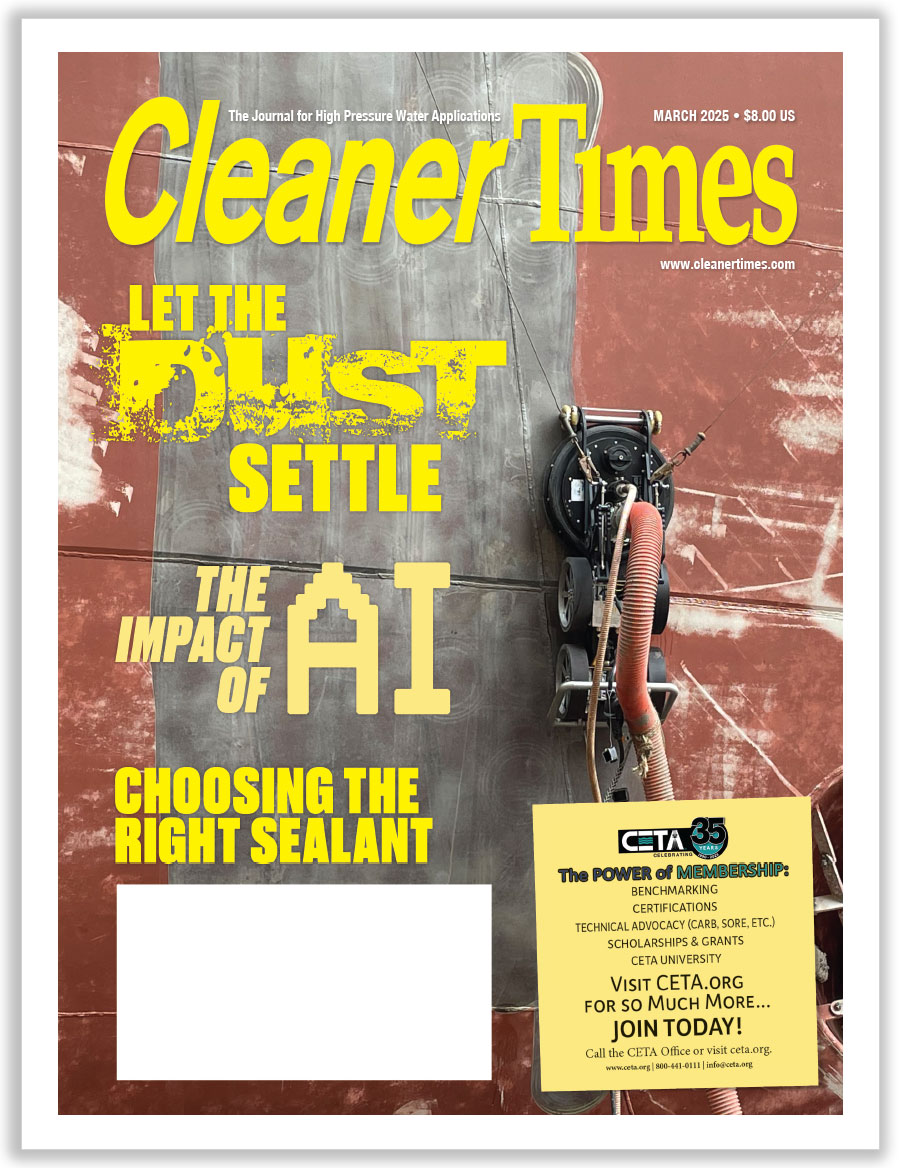
Private Labeling: A Time-Honored Tradition
By Diane M. Calabrese / Published May 2015

C
hemicals Private Labeling
Private labeling is a time-honored tradition. The range of products that may be affixed with a private label is wide. It encompasses everything from mulch, top soil, and packets of firewood to socks and tea.
When a company that sells to end users has its name and logo put on certain products, it signifies great confidence in those products. A private label also ensures that a buyer will think of the company when it is time for a resupply.
Manufacturers, as well as wholesalers, provide private labeling as a service to their distributors. Among the products that can be private labeled are chemicals.
Because a distributor selling under a private label wants to capture return business, it has a great incentive to make certain that the product being sold meets quality and efficacy standards. Yet the manufacturer also wants to know that its product, once privately labeled, is being sold and used as designed and formulated.
WorldWare Enterprises Ltd. (Eatoils.com) offers a private labeling option for wholesalers and distributors, says Charles Robinson, the national sales manager at the company, which is based in Cambridge, ON, Canada. But there is a stipulation.
“We require a contractual arrangement for quality and consistency of message purposes,” says Robinson. Still, there are those who embrace the private label option.
The value of private labeling takes many forms. “Some clients have unique selling characteristics and can provide increased market penetration as a result,” says Robinson. “Some clients can also provide a depth of coverage that will provide their clients with improved service by using a private label product.”
There is a careful balance that must be achieved when a manufacturer offers private labeling. “The private label option can disrupt other distribution channels,” says Robinson.
To avoid disruption, a manufacturer must have a thorough understanding of its potential market and a commitment to reassess it regularly. The result of such assessment is that the benefit in offering private labeling to distributors can be realized.
Among the most significant benefits is extended reach. “Appealing to a wider audience and providing solutions in untapped markets,” says Robinson, is a great benefit of private labeling.
A distributor gains a great deal from a formulation that brings its customers back for more. In turn, the manufacturer also gains.
Private labeling is about more than repeat business, though. It is also a mechanism for allowing manufacturers to tailor products to the precise needs of a distributor, including modifications that may boost performance at particular locations (e.g., hot and dry conditions vs. hot and humid conditions).
Many Good Reasons
There are many good reasons to offer private labeling, says Merrill H. Fox, national sales manager at ITD, Inc. in Tucker, GA. “By private labeling, the distributor’s products are protected from competition, connecting them to the manufacturing source.” In other words, if a customer wants more of a valued product, returning to the same distributor to buy it again makes sense.
At the same time, the distributor need not be concerned about attempts to replicate the product. “The product formulas are secure in that it would take an experienced lab to try to unlock the product make up,” says Fox.
Distributors that have private label arrangements with manufacturers have a high-degree of confidence in the manufacturer. It’s a positive relationship.
Confidence is of utmost importance because the distributor who has entered into a private label system should not be doing anything to alter the product received from the manufacturer. In fact, manufacturers rely on their private label customers to sell the product as they received it. If they do not, there is a risk to the manufacturer.
The risk is “inheriting liability,” says Fox. That can happen “if the distributor alters the finished product supplied” by the manufacturer.
“Most manufacturer’s insurance covers ‘products completed’,” says Fox. “Therefore, when a distributor alters a finished product, the liability shifts to the distributor.”
The distributor should not have cause to alter a product. The manufacturer can make adjustments requested and negotiated.
“We have a thousand formulas in addition to our product catalog,” says Fox. “Our in-house analytic lab and chemist have created custom formulas to meet each distributor’s needs.”
The extent of customization possible with chemicals is great. “It includes matching colors and scents requested by distributors,” says Fox. “This truly gives the distributor the protection and edge over the companies that have the same brand from city to city across the country.”
Fox’s own experience with chemicals and the pressure washer industry goes back four decades. Before he took his current position, he operated a distributorship in South Florida for 29 years. Cleaning chemicals were an integral part of the pressure washer sale, he explains.
When he operated his own company, Fox bought products from manufacturers and their name was the one on a chemical container. He got interested in private labeling when he saw an ad in this magazine placed by the company for which he now works. He became intrigued by the possibilities of private labeling.
Not only could products be matched to a job by color and scent, but other customizing could be done. “Names were chosen to reflect a desirable and strong title,” says Fox. “Styles of label were available to choose from.” The distributor could put a memorable design on the product container, one the purchaser would likely recall.
Not only does private labeling include product customization, but it also covers all the ancillaries that a distributor would be expected to have available with any chemical sold. For each private labeled chemical, there are the requisite safety data, technical, and information sheets.
Private labeling is truly that, explains Fox. If a distributor lists a product on its website, it will emerge in a search engine. But the manufacturer of a private label chemical will not list the private label in its catalog.
Cautions
The plusses in private labeling generally outweigh any risk, especially when all contractual agreements are carefully made. The best outcomes are achieved when the manufacturer is intimately involved in the production of the chemical. In other words, it follows strict, replicable guidelines. And it knows and has complete confidence in its sources.
Manufacturers must be extremely careful about sourcing products from certain countries. Most companies do not purchase products—sources for products—from vendors unless they have inspected their facilities firsthand. That’s with good reason.
Any defective product sold in the United States opens the manufacturer and the seller of the product to liability claims. Unfortunately, if a foreign supplier provides a manufacturer with a defective ingredient, the manufacturer will likely bear the entire responsibility for things gone wrong. That’s because the foreign supplier may skirt responsibility by claiming no legal presence in the United States. That, in turn, puts the onus on the manufacturer, which would most likely have to go to the country of the supplier to make a claim.
Manufacturers can protect themselves (to a large degree) with liability insurance for the products it sells. It can also seek an indemnification clause in its contract with suppliers, so should an errant component be supplied, the supplier will be responsible.
In the end, however, it is trust and due diligence between parties that make private labeling a success.




